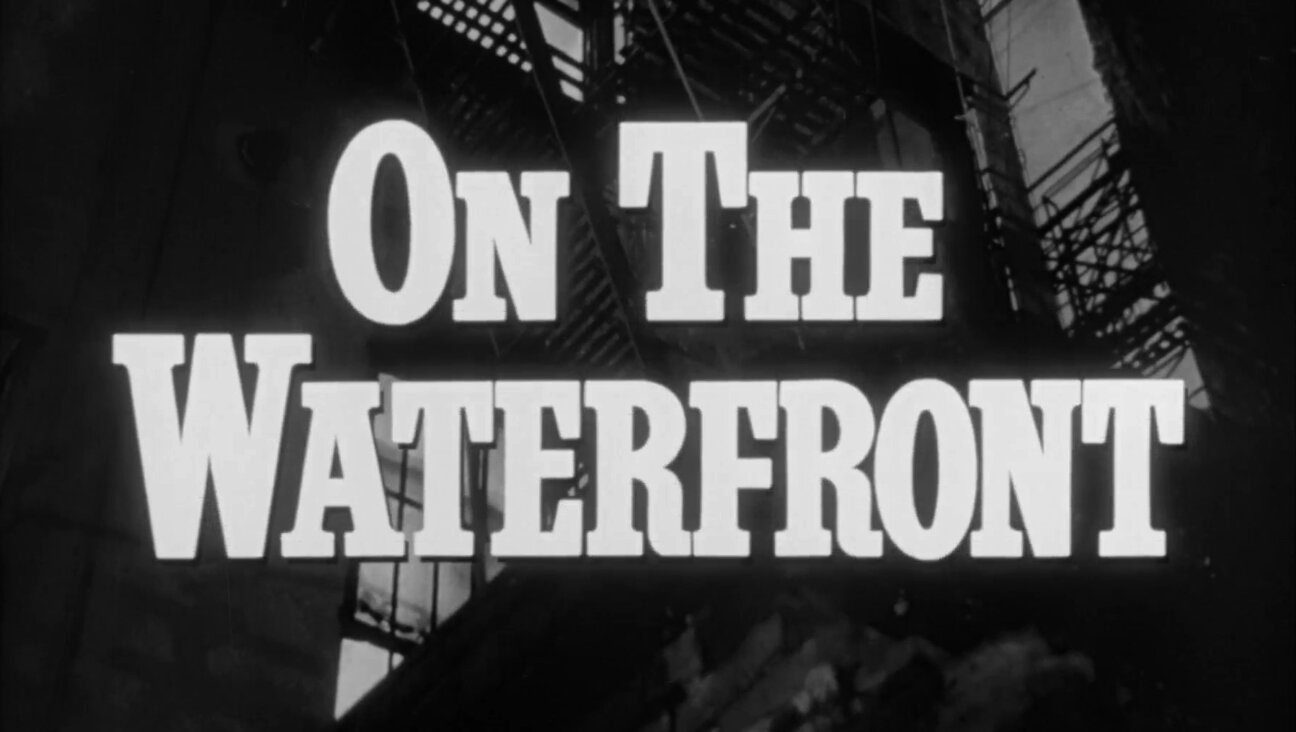Father’s Day
My grandparents’ lake house was the final resting place for household possessions that had been replaced but were too good to throw away. As a result, when we were out there, we ate off unmatched dishes while sitting on unmatched chairs. We slept on ancient sheets beneath heavy quilts that smelled of the must of many winters. There were so many rooms at the lake house that there was always space for more things that others might have thrown away.
So when my grandmother died, I could leave her slippers, which had taken on the shape of her feet, on the shelf out there, leave her scarves and stockings in the bureau drawers. There was enough room for her things, and — after I took over her room — my things, as well.
It didn’t bother me — indeed, it made me feel that she was still with me — that we shared the space. I would push aside her coat while hunting for my jacket, shove over her scarves to make room for my jogging socks. But at last, one June day about three years after her death, I went out to set up the lake house for the summer and finally decided to clear the drawers of her things, essentially burying the dead.
I took down her coat, folded it up and wept. (I had been with her when she had found my late uncle’s Army jacket in a lake house closet one summer and, mourning his loss, had wept. I hadn’t understood then; I do now.) I folded her old dresses; I removed her underwear from the drawers.
In the bottom drawer, I found that the gift wrap she had used for drawer lining was awry. I tried to smooth it, and discovered there was something underneath.
What I found were two newspapers, one with the announcement of my Aunt Anita’s marriage, 25 years earlier. And the other? Its ancient yellowed pages were filled with finely printed Hebrew letters. I could just barely sound them out. The paper was the Yiddish-language Jewish Daily Forward. Its date was December 3, 1913. Why had my grandmother kept that paper? She and my grandfather had married more than a year later; surely the paper had not contained her marriage announcement.
I scanned the headlines, laboriously sounding out any word that looked like it might be a family name. I really understood almost no Yiddish, although as a child, I had heard it spoken often when my parents didn’t want me or my siblings to understand what they were saying. (We had therefore made it our business to comprehend the meaning of their words, but without developing any real fluency.) I knew that the language did not sound unlike the German I had heard on Milwaukee streets and buses all my life, since its roots lay in Middle German. And I knew it was written in Hebrew letters, which I had learned to read phonetically when I was 8. But I found nothing that indicated any reason for my grandmother to have kept this paper for more than half a century.
Perhaps my parents would know. I put the paper in my car to take over to their house later. I finished cleaning the bedroom and had another good cry or two. Then I locked the lake house and drove into town. It was late on a Sunday afternoon, and I had driven almost all the way to my parents’ home before I realized that it was Father’s Day.
I bore no gift, so I gave the ancient copy of the Jewish Daily Forward to my history-buff father.
“Look what I found at the lake,” I said. “It was under the liner of a drawer in Nana’s dresser. I can’t imagine why she kept it.”
“I can’t either,” my father told me, but my mother interrupted him.
“Wasn’t there an old family story about your father writing a letter to the Bintel Brief?” she asked.
My father’s face lit up. “Of course!” he exclaimed. He turned to the Bintel Brief, the advice column that had aired and answered the troubles of lovelorn immigrants in the early days of the century.
“Of course,” he said again, wonderingly. “I think this is his letter.”
The three of us — my father, my mother and I — gathered around the kitchen table to read the letter in the best possible light. My father struggled with the fine ancient print and read aloud, while my mother helped him translate, and I wrote it all down.
“His whole life has been filled with unhappiness,” my father began, “from the things people have done to him. He finally reached the point in his life when he found a lucky sweetheart, and she is also bound up with something bad.”
“This is only the headline,” my father explained. “The letter hasn’t even started. There is also a note: ‘Those who write to the Bintel Brief are requested to use only one side of the paper.’”
“As a steady reader of your newspaper, I am writing you for advice,” the actual letter began. “My whole life I have endured hardships and badness from people.”
“Evil from people,” my mother corrected.
“Evil from people,” my father agreed.
“I didn’t know anything except hatred. Now, finally, I know of love, but my love for my sweetheart is also bound up with sorrow.
“I come from a small shtetl in Russia. I have been in America for 10 years.”
“Which means,” my father calculated, “that at the time he wrote the letter, he was 23 going on 24.”
“I am very much alone. Since I was old enough to be aware, I didn’t have a mother. I am an orphan who has had no shortage of troubles. When I turned 14 years old, I saw that there was no future in my remaining in Russia. There was such hate in my house that I was beaten every day — not by my father, but by my stepmother. My father is a grain merchant, and he didn’t know about this. He only came home on weekends, and he didn’t know anything about how my stepmother abused me.
“One day I decided to take the bull by the horns. I told my father that he should give me the fare to go to America. But I told him with tears in my eyes that I couldn’t take it any longer. If he didn’t give me the money to go to America, I would leave town, go to another city, and find work there, and I would get to America without him.
“My father understood me, and he told me to write a letter to my aunt in America. If she would keep me in her house, he would give me the money to pay for the trip.
“I wrote a fine letter, and it didn’t take long before my aunt answered. If my father would give me the ticket for the trip, she would be happy to have me. It didn’t take long before I was on my way to the golden land. “Here in America, I went at once to work in a factory, and I earned my keep. My life opened up. The black-and-blue marks from my stepmother’s sticks began to fade.
“And so, two years passed. I taught myself a trade, and I began to earn $12 a week.”
“He became a cigar maker,” my father noted. “He was on piecework, and that was a very good salary for those days. He must have been very good at it.”
“But now began new troubles,” the letter continued. “My uncle took all of my money and told me that he was saving it for me. But I didn’t let him fool me very long. I told him that first I would pay my father back for the ticket, and after that I would give him my money to save for me.
“Another couple of years went by, and my father in Russia became poor, and I used to send him money very often. My uncle didn’t like this new situation. He had been preparing a little purse to save my money in, and I was giving him nothing. He tried all kinds of tricks, and though I was careful, he still managed to get a few hundred dollars out of me, and to this day, he hasn’t paid me back. When I used to ask him for it, he would say, ‘It’s just like in the bank.’
“One Friday evening, when we were all sitting and eating supper, he began again to ask me for money. He jumped up like a wild Indian and shouted: ‘You forget that you have nobody here. Watch out, or I’ll take you by the collar and throw you down all the steps!’
“My aunt held him back. I sized up the situation: It was not a nice thing for him to want to take all my money. So I made up my mind to leave them, and my friends. That Sunday, I packed my belongings and left for a strange city. There I found work, and a few people from the same town in Russia. I felt very good.
“A few years passed, and I managed to save quite a bit of money. With a lantzman also from my trade, I started my own business. At the beginning, it went very well. But my partner started to play the role of a boss, and he didn’t want to work, and he also robbed me. Soon we went out of business. In America, when you steal from someone, they call it business. And I came out, just like when my mother bore me, clean.”
My sister had wandered in. “That doesn’t sound like the grandfather I remember,” she said. “Not that dignified, successful businessman.”
“You fooled him once, but you never fooled him twice,” my father told me. “Don’t forget, he was only about 17 or 18.”
He and my mother went on with the translation: “So I started working again, and earned good wages. “My father began to write me to save up some money and return to Russia. With money, I could buy myself out of the army and become a merchant. I was tired of being tossed from pillar to post, and so I wrote to my father that I thought I would, indeed, do as he asked. I saved up a fine bundle of money, and decided to go home in another month.
“Then a good friend asked me to go with him to a dance. I went to the dance and had a fine time, and there I began to fall in love. I was introduced to a girl who, from the first glance, appealed to me. I must add that I did grow up to be a tall, handsome lad, and was quite Americanized. From the dance on, I forgot to think about going home, and I only thought about her — with clean thoughts, not with lust.”
“And another month went by, and I met her again at another dance. This time I took her home, and she invited me to come and visit her if I wanted to. I began to visit at her house, and a lot of other young men came to the house. And so, another year passed. We all went out as a group together and enjoyed ourselves.
“But someone told me that she had a different boyfriend, and I didn’t want to interfere. I suffered much because of this, and went around all confused. I decided to leave the city and go away. I didn’t feel I could remain in the city any longer.
“And so I went to her to say goodbye. She took my hand in hers and wished me well, and she asked me not to forget to write to her often. She promised she would answer me at once.
“I took that as a sign that she had some feelings for me, and I promised her that I would write, and I bade farewell to her and her family, and went back to my uncle.”
“Three months passed, and I didn’t write. I tried to forget her, but I couldn’t do it. My thoughts tormented me. She was in my mind day and night.
“Finally I wrote a letter, and it didn’t take long before she wrote me a nice answer. So we wrote to each other for a year.”
“That’s that collection of post cards that she kept, wrapped up, in her closet!” I exclaimed. “The ones written in pencil, all signed ‘your friend.’”
“They were more restrained in those days,” my mother noted.
“My aunt was beginning to think about making a match for me,” my grandfather’s letter continued, “and she began to talk to me of refined young women from fine families, but none of them interested me.”
“I decided to ask this girl if anything would come of our correspondence. I told her that she should discuss this with her parents. It didn’t take long before I received an answer, that she was very pleased, and her parents were also pleased.
“I couldn’t be without her. I began to think about how we could get together and visit. And I didn’t think long before I decided to return to the city where she lives. And when I saw her at last, it was like I had a new spirit. And I finally reached a lucky moment in my life. I finally found a person who would give me nothing bad, a person who makes me lucky — but again, there is a worm in my joy.
“She has an older sister. Her eyes are two coals of fire against me. She begrudges her sister that she has a fiancé before her. She can’t bear it that we should have the fortune to be alone together. She never leaves us alone for a second. Where we take a step, she comes along.
“I do not have the heart to tell her off, because I don’t want to embarrass her, but I feel that she is only out to spoil things for us. She is a thorn in my side. This makes me feel that it is my fate only to encounter people who want to do me harm. From my childhood to this day, there has never been a moment that others have not done evil to me, from my stepmother to my future sister-in-law.
“I wish to hear your advice regarding this, and also your advice as to how to handle my future sister-in-law.”
“Did Aunt Bella know about this letter?” my sister wanted to know.
“Of course,” my father said.
“You know,” my mother told him, “when I first met your family, I didn’t realize that your father and your aunt didn’t speak to each other. Now I know why.”
My father nodded sagely. “Here’s the Bintel Brief’s answer,” he said, picking up the paper again.
“To the Sad Orphan: It isn’t true that there are only bad people in the world. To your sorrow, you have just managed to have bad experiences with people, so you have become pessimistic. But it is only temporary. The world is actually full of golden men who give their souls away to other people. It is also not fair to compare your future sister-in-law to your stepmother. If she doesn’t happen to have a boyfriend, you should treat her kindly.
“Actually, she shouldn’t be with you all the time, but you shouldn’t have resentment because of this. You should manage to get away from her with tact. You shouldn’t rub salt in her wounds. We can’t tell you how to manage things, but you must have tact, perception and feeling.
“You should definitely abandon your pessimistic thoughts, that all people are bad, or have evil intent. You should take away the sadness from the sister-in-law, and have kind thoughts for her.”
“Well,” my sister asked, “did he take the advice?”
My father chuckled. “They lived in the same house, one couple upstairs and the other down, for decades, and he and Bella never spoke to each other,” he said.
“She used to say, ‘Ask him if he wants to come down for coffee,” even when he was sitting right there,” my mother told us. “One day, I said, ‘Ask him yourself,’ but she just shrugged, and so did he. Your grandmother told me later that they hadn’t spoken to each other in years.”
I tried to picture the tall, dignified grandfather I remembered as a young man so in love with a rosy-cheeked girl, and so stymied at every encounter by the presence of her sister, that he was moved to seek advice from the Forward’s Bintel Brief. Perhaps the advice he had received had been sound, for he had managed to marry my grandmother and had produced three children, one of whom had produced me.
The grandmother whose coat and dresses I had so tearfully folded that morning had been a young girl once, loved by this courageous youth who had left the land of his birth to labor in a brave new world. I knew them better now, and loved them more.
And I looked at my parents as my father slowly folded that ancient copy of the Jewish Daily Forward along its old creases, and it occurred to me that I had given my father a Father’s Day present like no other he would receive. And he — and my grandfather — had just given me one in return.
Ellen M. Kozak is an attorney and writer in Milwaukee, where her grandparents settled more than a century ago. Her most recent book is “The Everything U.S. Constitution Book,” out in June from Adams Media.
A message from our CEO & publisher Rachel Fishman Feddersen

I hope you appreciated this article. Before you go, I’d like to ask you to please support the Forward’s award-winning, nonprofit journalism during this critical time.
At a time when other newsrooms are closing or cutting back, the Forward has removed its paywall and invested additional resources to report on the ground from Israel and around the U.S. on the impact of the war, rising antisemitism and polarized discourse.
Readers like you make it all possible. Support our work by becoming a Forward Member and connect with our journalism and your community.
— Rachel Fishman Feddersen, Publisher and CEO






















